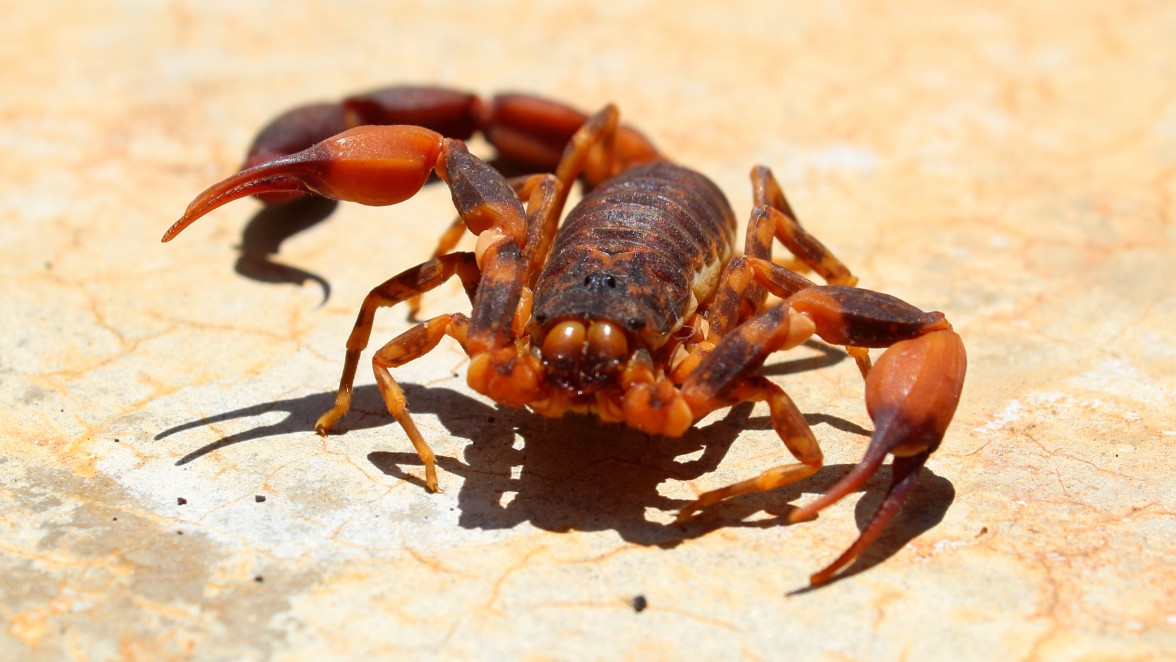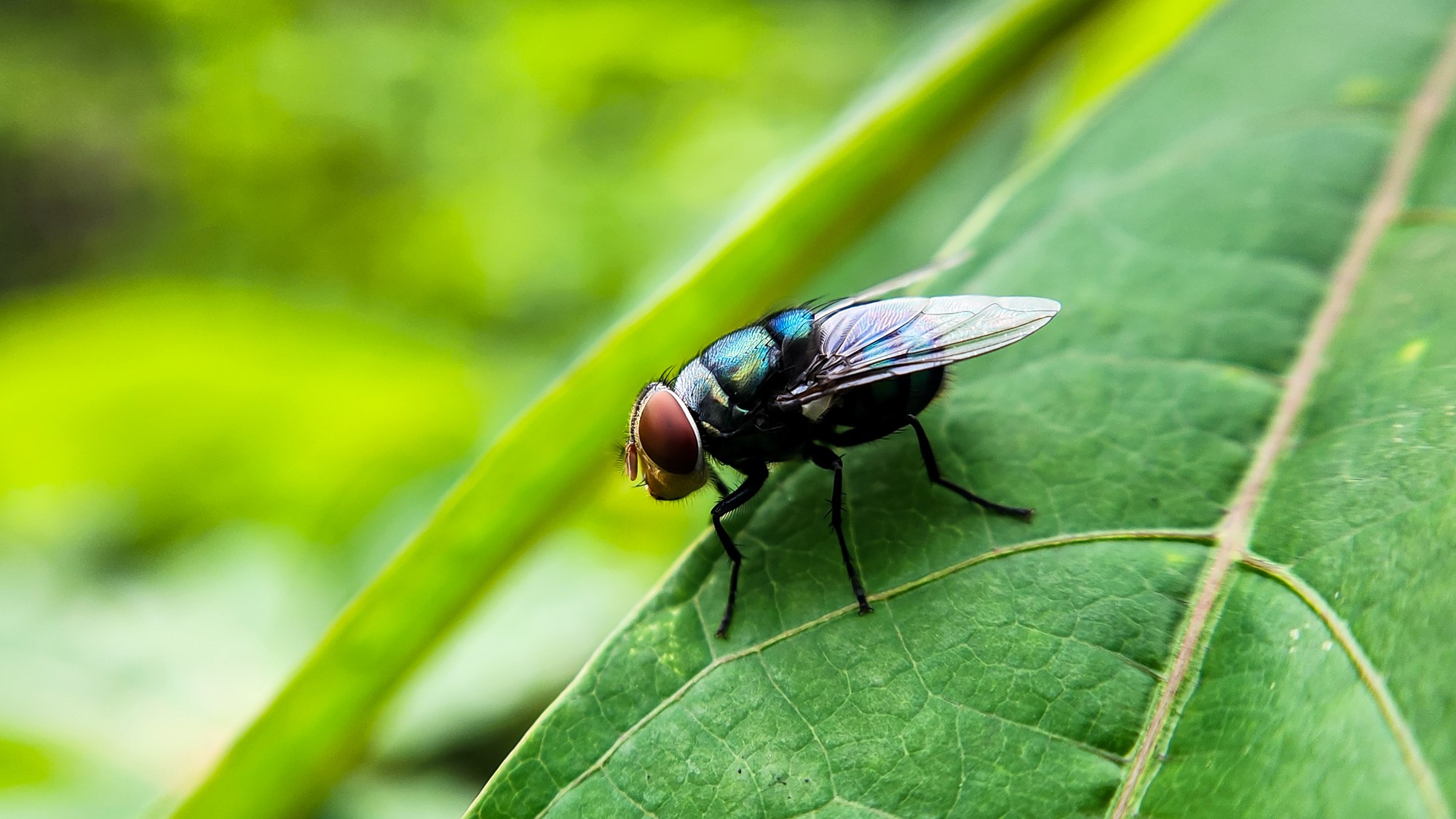Brazil has a scorpion problem
Venomous arachnids are infesting country's fast-growing cities

A free daily email with the biggest news stories of the day – and the best features from TheWeek.com
You are now subscribed
Your newsletter sign-up was successful
Scorpions are "taking over" Brazil's cities, scientists have warned. And with these infestations comes a huge rise in stinging incidents, some of them fatal, and often caused by Brazilian yellow scorpions, known for their extremely toxic venom.
Climate change and urbanisation have been blamed for the exploding scorpion population and, experts say, it might already be impossible to stop.
Deadly venom
More than 1.1 million scorpion stings were reported in Brazil between 2014 and 2023: with a 155% rise in reports over that period, according to a study published in Frontiers in Public Health. The surge in numbers is "driven by rapid, unplanned urbanisation", said The Guardian. The sprawl of "high-density housing" encroaches on scorpions' natural habitats in the wild, and "poor waste disposal" creates new environments where they can "thrive".
The Week
Escape your echo chamber. Get the facts behind the news, plus analysis from multiple perspectives.

Sign up for The Week's Free Newsletters
From our morning news briefing to a weekly Good News Newsletter, get the best of The Week delivered directly to your inbox.
From our morning news briefing to a weekly Good News Newsletter, get the best of The Week delivered directly to your inbox.
This "rampant urbanisation" also "scares away scorpions' natural predators, such as lizards and birds", and "boosts the number of available cockroaches", which make "tasty meals" for the arachnids, said Phys.org. As a result, scorpions have become "the most lethal venomous animal" in Brazil, with 152 deaths from scorpion stings last year, compared to 140 deaths from snake bites.
The native Brazilian yellow scorpion is the most deadly scorpion in South America: its venom can kill a human within a few hours. And as climate change raises temperatures, these creatures are "more active, eating more and reproducing more".
'Herculean task'
Venomous scorpions have "already claimed their place, alongside violent crime and brutal traffic" as the "chronic problems" Brazilian city-dwellers must "cope with daily", wrote Hamilton Coimbra Carvalho, a researcher at the University of São Paulo, on The Conversation in 2019.
The government seems "ill-equipped" for the "Herculean, if not downright impossible", task of tackling the infestations, with no plan other than "tepid" efforts to train health officials in "scorpion risk". It's likely already to be "too late" to stop the spread of scorpions across Brazil's cities.
A free daily email with the biggest news stories of the day – and the best features from TheWeek.com
But the arachnids are "not our enemies", Manuela Berto Pucca, from São Paulo State University, told The Guardian. As "part of the natural world", they play "essential ecological roles", from "controlling pest populations to maintaining biodiversity". And, crucially for the humans who live alongside them, they "act defensively, not offensively".
Chas Newkey-Burden has been part of The Week Digital team for more than a decade and a journalist for 25 years, starting out on the irreverent football weekly 90 Minutes, before moving to lifestyle magazines Loaded and Attitude. He was a columnist for The Big Issue and landed a world exclusive with David Beckham that became the weekly magazine’s bestselling issue. He now writes regularly for The Guardian, The Telegraph, The Independent, Metro, FourFourTwo and the i new site. He is also the author of a number of non-fiction books.
-
 Local elections 2026: where are they and who is expected to win?
Local elections 2026: where are they and who is expected to win?The Explainer Labour is braced for heavy losses and U-turn on postponing some council elections hasn’t helped the party’s prospects
-
 6 of the world’s most accessible destinations
6 of the world’s most accessible destinationsThe Week Recommends Experience all of Berlin, Singapore and Sydney
-
 How the FCC’s ‘equal time’ rule works
How the FCC’s ‘equal time’ rule worksIn the Spotlight The law is at the heart of the Colbert-CBS conflict
-
 Scientists are worried about amoebas
Scientists are worried about amoebasUnder the radar Small and very mighty
-
 Scientists have developed a broad-spectrum snake bite antivenom
Scientists have developed a broad-spectrum snake bite antivenomUnder the radar It works on some of the most dangerous species
-
 Climate change is getting under our skin
Climate change is getting under our skinUnder the radar Skin conditions are worsening because of warming temperatures
-
 Climate change is making us eat more sugar
Climate change is making us eat more sugarUnder the radar Sweets make the heat feel more manageable
-
 Sloth fever shows no signs of slowing down
Sloth fever shows no signs of slowing downThe explainer The vector-borne illness is expanding its range
-
 Is that the buzzing sound of climate change worsening sleep apnea?
Is that the buzzing sound of climate change worsening sleep apnea?Under the radar Catching diseases, not those ever-essential Zzs
-
 Climate change can impact our gut health
Climate change can impact our gut healthUnder the radar The gastrointestinal system is being gutted
-
 The New World screwworm is making a deadly comeback
The New World screwworm is making a deadly comebackThe explainer The parasite is spreading quickly